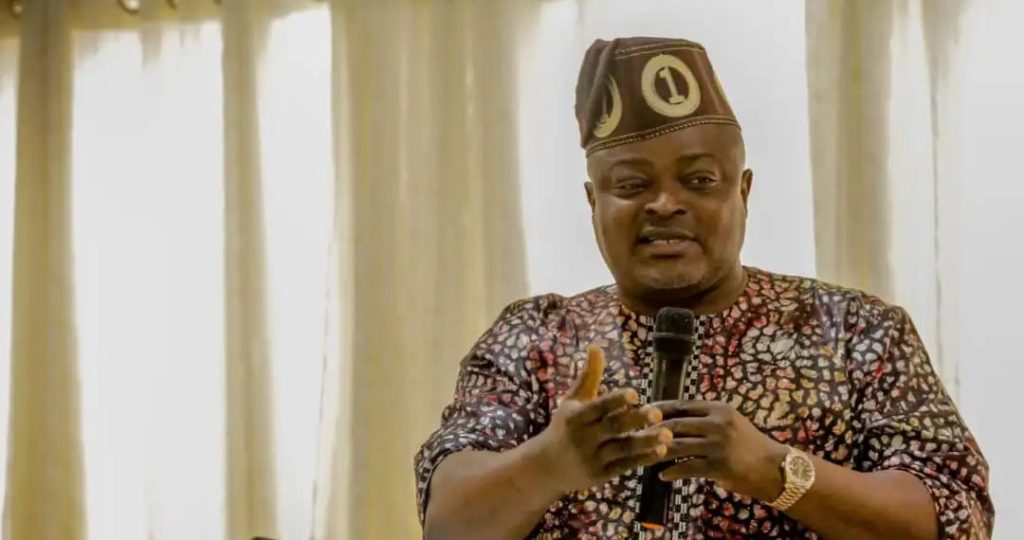The political landscape of Lagos State is currently embroiled in a power struggle following the impeachment of Mudashiru Obasa as Speaker of the State House of Assembly. This event has not only created a rift within the ruling All Progressives Congress (APC) but also opened doors for opposition parties seeking to capitalize on the unfolding crisis. Obasa’s removal, stemming from allegations of misconduct and financial misappropriation, has exposed deep divisions within the APC’s hierarchy, particularly within the Governance Advisory Council (GAC), the party’s apex decision-making body. This internal conflict threatens to destabilize the party’s stronghold in the state and presents an opportunity for rival parties to gain ground.
The controversy surrounding Obasa’s impeachment has ignited a public clash within the GAC. While some members, like Senator Anthony Adefuye and Chief Muraina Taiwo, have questioned the legality and process of the impeachment, others, such as Senator Musiliu Obanikoro, have dismissed these concerns as trivial. This disagreement underscores the existing factions within the APC and the struggle for influence over party affairs. The situation is further complicated by the invocation of President Bola Ahmed Tinubu’s name as the ultimate arbiter of the dispute, highlighting the complex interplay between state and national politics within the party. With the GAC split on the issue, the resolution of this conflict rests heavily on President Tinubu’s intervention.
The Lagos State House of Assembly, while awaiting Obasa’s appearance before the House, has maintained an ambiguous stance. Their declaration to determine the next course of action only after Obasa’s appearance leaves room for speculation. This delay in action further fuels the political tension and allows the crisis to escalate. The lack of communication from the Assembly’s spokesperson adds to the uncertainty and leaves the public and political observers speculating about the next move. The House’s approach adds another layer of complexity to the already delicate political situation.
Meanwhile, opposition parties are keenly observing the unfolding drama within the APC, viewing it as a potential turning point in the state’s political landscape. Both the Peoples Democratic Party (PDP) and the Labour Party (LP) have expressed their willingness to welcome Obasa into their folds should he decide to leave the APC. This overt invitation highlights the opportunistic nature of politics and the willingness of opposition parties to exploit the ruling party’s internal struggles. These overtures also underscore the potential for significant political realignment in Lagos State, a traditional APC stronghold.
The PDP, in particular, sees the APC’s internal strife as a chance to regain lost ground in the state. They are cautiously optimistic, emphasizing the need to learn from past mistakes and strategically utilize the APC’s current weaknesses. While acknowledging the potential benefits of Obasa’s defection, the PDP has also made it clear that he would not be granted any special privileges and would have to earn his place within the party. This cautious approach reflects the PDP’s awareness of the risks associated with absorbing a high-profile politician from a rival party.
The Labour Party has also extended an invitation to Obasa, emphasizing its inclusive nature and willingness to welcome anyone aligned with its vision and principles. However, the LP has clarified that Obasa would not receive preferential treatment and would have to compete fairly with other members, including the party’s previous gubernatorial candidate. This stance demonstrates the LP’s commitment to internal democracy and its attempt to avoid internal conflicts that could arise from perceived favoritism.
In summary, Obasa’s impeachment has triggered a political earthquake in Lagos State, creating rifts within the ruling APC and presenting opportunities for opposition parties. The GAC’s division, the Assembly’s ambiguous stance, and the overtures from the PDP and LP all contribute to a complex and dynamic political landscape. The ultimate outcome of this crisis will significantly impact the political power dynamics of Lagos State and may reshape the political future of the state leading up to the 2027 governorship election. The unfolding events will undoubtedly be a subject of intense scrutiny as political actors maneuver and reposition themselves in this fluid political environment. The long-term consequences of this power struggle remain uncertain, but its impact on the state’s political landscape is undeniable. The ongoing saga will continue to captivate political observers and shape the future political trajectory of Lagos State.


